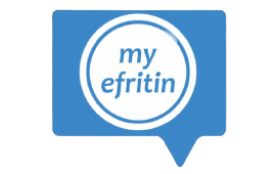NATO’s Joint Force Command Naples said on Tuesday that it was deploying reserve troops to Kosovo to reinforce the NATO-led KFOR peacekeeping force. The information was later confirmed by NATO Secretary General Jens Stoltenberg, who said 700 soldiers were being deployed to the Balkan country.
This happens after several days of unrest and the injury of 30 Kosovo Force (KFOR) troops on Monday as they tried to keep protesters away from municipal buildings in Serb-dominated towns in Kosovo.
“In response to recent unrest and the injury of 30 members of NATO’s Kosovo Force, NATO has directed the deployment of the Operational Reserve Forces (ORF) for the Western Balkans, which was on a seven-day readiness-to-deploy status.”
It also reported that an additional reserve battalion would be ordered to increase readiness, so it would also be able to deploy in seven days if necessary.
“The deployment of additional NATO forces to Kosovo is a prudent measure to ensure that KFOR has the capabilities it needs to maintain security in accordance with our UN Security Council mandate,” said Admiral Stuart B. Munsch, cammadner of Allied Joint Force Command Naples.
Munsch also said he wanted “to commend KFOR for taking swift, restrained and professional action to intervene to stop the unrest and to save lives” on Monday.
“The violence must stop, and all sides must stop taking actions to undermine the peace in any and all communities of Kosovo,” Munsch said.
Troops back on guard after Monday’s clashes
Dozens of NATO-led Kosovo Force (KFOR) soldiers again stood guard outside municipal buildings in three northern Kosovo towns on Tuesday.
Tensions have worsened since ethnic Albanian mayors took office in the region’s Serb-majority area after April elections that were boycotted by Serbs.
Soldiers clad in full riot gear erected a metal barrier around town hall in the municipality of Zvecan, where several hundred Serbs had tried to enter the building a day earlier.
The NATO troops also secured municipal buildings in two other towns — Leposavic and Zubin Potok.
Three armored vehicles belonging to the ethnic Albanian Kosovo police were parked in front of the town hall.
Violence flared on Monday after Serbs tried to force their way into Zvecan town hall, but Kosovo police fired tear gas to repel them.
The KFOR troops had been deployed to separate protesters from the police. At some point, they started using shields and batons to break up the demonstrators, while protesters responded by throwing rocks, bottles and Molotov cocktails at the soldiers.
More than 52 protesters and some 30 KFOR soldiers suffered injuries in the violence, including from “fractures and burns from improvised explosive incendiary devices.”
Serbs boycotted last month’s elections in northern towns where they are the majority. That allowed ethnic Albanians to take control of local councils despite a tiny turnout of under 3.5% of voters in those municipalities.
Why are the Serbs protesting?
While ethnic Albanians make up more than 90% of the population in Kosovo as a whole, that’s not the case in parts of the north, close to the Serbian border.
Serbs there have long demanded the implementation of an EU-brokered 2013 deal to create an association of autonomous municipalities in their area.
Kosovo Prime Minister Albin Kurti objected, saying this would create a mini-state and effectively split Kosovo along ethnic lines.
In protest at their demands for autonomy not being met, Serbs refused to participate in local elections in April. That allowed ethnic Albanian candidates to win the mayoralties in four Serb-majority communities with just a 3.5% turnout.
Serbian President Aleksandar Vucic has blamed Kosovo authorities for causing problems by installing new mayors, while Pristina claims that Vucic has sought to destabilize Kosovo.
Russia and EU voice dismay at impasse
Russia, which has long had close ties with Serbia, on Tuesday said “decisive steps” were needed to de-escalate the situation.
Russia’s foreign ministry urged “the West to finally silence its false propaganda and stop blaming incidents in Kosovo on Serbs driven to despair, who are peaceful, unarmed, trying to defend their legitimate rights and freedoms.”
Moscow has helped block Kosovo’s bid for United Nations membership at the request of Belgrade.
In turn, Pristina is heavily reliant on the US and its allies in its fight for full recognition. In the runup to the current unrest, however, Western powers had been unusually critical of Kosovo attempts to install mayors by force. The US has accused the government for “escalating tensions” and using “violent measures” in the north.
Meanwhile, EU foreign policy chief Josep Borrell called on Kosovar and Serbian leaders to seek a path to de-escalate tensions through talks.
“We have too much violence already in Europe today. We cannot afford another conflict,” Borrell said.








Your point of view caught my eye and was very interesting. Thanks. I have a question for you.